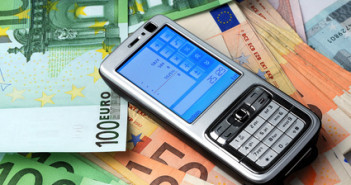QE is verboten, no?
Guest post by Jamie Coleman
Yes, but so were EU bailouts for the likes of Greece, Ireland, Portugal and Spain earlier this decade. Such measures were unthinkable right up until the time that Germany realized there was no alternative and caved to the reality that without bailouts the euro area would collapse.
Expect the calculus to be quite similar in the coming months if deflationary forces continue to build.
At Thursday’s ECB press conference, Draghi quelled talk of an insurrection within the ECB governing council and codified the notion that the ECB balance sheet will have to, at a minimum, approach the early 2012 highs in excess of EUR 3 trln. Coming just days after Reuters reported that a rebellion had broken out within the halls of the ECB, Draghi’s performance was nothing short of a triumph. He has firmly retaken the reins of the bank.
He set in motion a process to explore additional easing measures, presumably the potential purchase of corporate bonds and no doubt, government bonds, if it is deemed necessary.
Draghi will not undertake the purchase of government bonds lightly. It will come only when there is no alternative and deflation is at hand (and thus will be less effective if it had been deployed before deflation had a chance to take hold). And when it comes, there will be no alternative. I expect the German ECB members to recognize that the risks of deflation are greater than the risks of potential credit losses on assets bought by the ECB. I don’t expect Weidmann nor Lautenschlaeger to resign in protest.
When full-blown sovereign QE finally comes, Germany will get in line to save the euro zone, as they have done in the past. There is no alternative.
